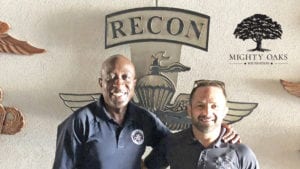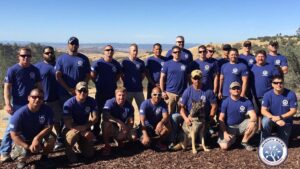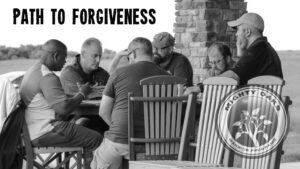By Jeremy Stalnecker –
Read this excerpt from Jeremy’s newest book due out in April 2018:

Life is hard. It doesn’t matter who you are, where you come from, what you look like, or where you live. If you’ve been around for more than a day or so, you’ve experienced something difficult.
Even the process of birth is hard. Both for the mother and the child being born (and the father, I believe, although I may get some pushback on that one), the process of bringing a life into the world is painful and traumatic. Then comes the difficult part—living! Ups and downs, victories and set-backs all blend together over time to make us who we are. And although we would like to think that the good and bad will offset each other, the truth is that sometimes the bad becomes so overwhelming we can’t see the good and would not know how to get to it even if we could.
This is one of the reasons counseling is such a challenge. Over the last several years I have had the opportunity to work with families and individuals who are dealing with a vast array of difficulties, some so overwhelming that the path forward is anything but clear. In the middle of each of these situations the question is always the same: “What do we do now?”
Early in my ministry life, I thought I had to have a clear answer every time someone asked me this question. I needed to be able to lay out a path with simple, achievable steps that would take the person or family overwhelmed by their situation out of the darkness they were experiencing as quickly as possible. It took me longer than it should have to learn that I didn’t have to have all the answers, that sometimes the path forward is not clear, and that it’s not my job to convince those who are hurting that it is. My job as a counselor, pastor, or friend is to give hope. To help those who are so overwhelmed that they simply want to quit. To tell them that things will get better eventually, but only if they refuse to give up.
 I still believe in helping folks understand the steps they need to take to get out of the darkness, but at the moment of crisis, the most important step that anyone can take is the next one. A counselor can act as a guide, but the decision to simply keep moving needs to be made before anything else can happen. This decision, the decision to keep moving forward, will be the difference between victory and defeat in the many battles that each of us will inevitably experience over the course of a lifetime.
I still believe in helping folks understand the steps they need to take to get out of the darkness, but at the moment of crisis, the most important step that anyone can take is the next one. A counselor can act as a guide, but the decision to simply keep moving needs to be made before anything else can happen. This decision, the decision to keep moving forward, will be the difference between victory and defeat in the many battles that each of us will inevitably experience over the course of a lifetime.
I learned in the Marine Corps that training and preparation and good processes are all important, but when the enemy is engaging you, none of those things matter if you are either unable or unwilling to move forward. Before the bigger, more deliberate steps can be taken, it is important to just get up and take the next one. We will get knocked down, ambushed, and overwhelmed by enemy fire, but we do not have to lay there and die. We can, if we decide to, move to a better position and continue the fight from there.
Unfortunately, in combat and in life, the situation can seem so overwhelming that people give up. In combat this can lead to a physical death, and in life it can lead to a spiritual, emotional, or relational death—not for lack of training or preparation, but because the decision was made to give up instead of getting up and taking the next step forward. When I was a young Second Lieutenant in Charlie Company, First Battalion Fifth Marines, we had a motto that put so much of this into perspective for me.






